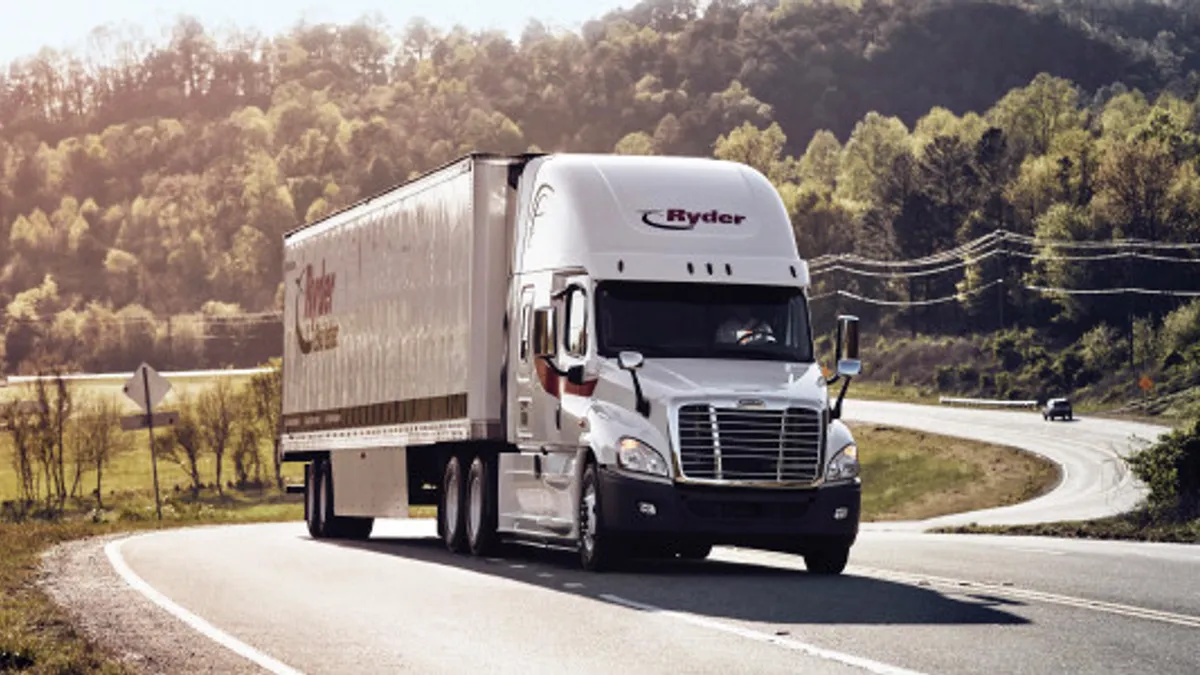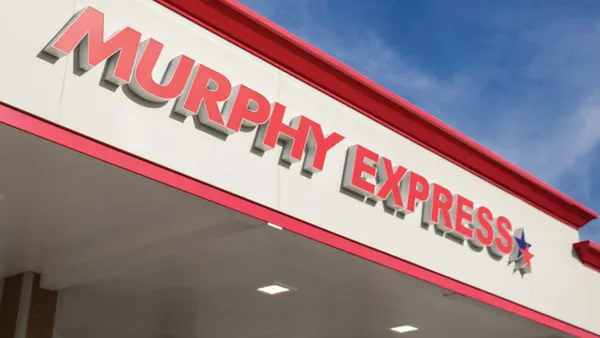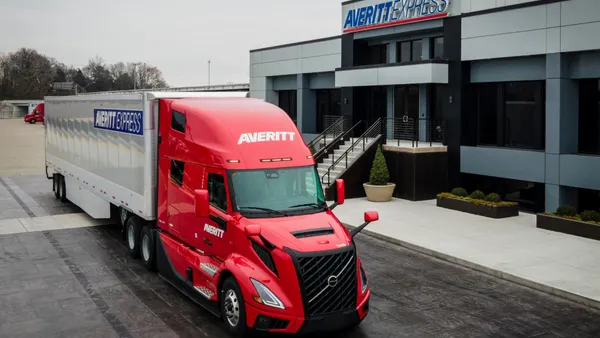Dive Brief:
- Ryder CEO Robert Sanchez said his company's business hit bottom in April for its rental, supply chain automotive and used-vehicle sales. Ryder began an upturn after April, but Sanchez told analysts during a Wednesday earnings call that a delay in the recovery of used-vehicle market conditions is now likely, with a full recovery not expected until mid-2022.
- Demand in Q2 for commercial rental vehicles remained "significantly below" the same quarter last year, as well as typical seasonal levels, Sanchez said, while noting rental demand has improved on a month-by-month basis since April. Ryder reduced its rental fleet size by 8,600 vehicles, or 19% from Q2 2019, according to its earnings release.
- Because Ryder expects to make fewer lease sales in 2020, it will spend less on new tractors. Underutilized equipment fulfilled some lease contracts, cutting capital spending deeper, according to its Q2 report.
Dive Insight:
The COVID-19 pandemic caused Ryder to take a hit as it offloaded tractors and trucks. Even as it sold 6,300 vehicles in Q2, 24% more than the same quarter last year, revenues for used tractors were down 33% in Q2, compared to Q2 2019.
The used Class 8 market is slowly recovering, according to one analyst.
ACT Research reported that used Class 8 sales grew 54% month-over-month in June, and 6% compared to June 2019. Steve Tam, VP of ACT Research, said the used Class 8 sales were a sign that the economy was recovering from the economic effects of the COVID-19 pandemic.
Ryder is one of North America's largest fleets, but its business model is different than most for-hire carriers and private fleets. Ryder boasts the ability to offer companies a full logistics package, starting with providing the trucks via fleet rentals.
Its business took a hit as the pandemic hit the United States and Canada beginning in March. Ryder reported a $74.1 million loss in Q2, down from a $75 million profit in Q2 2019. Ryder's Fleet Management Solutions segment had revenue of $1.2 billion, down 14% from Q2 2019. The company is not issuing guidance until the business environment stabilizes, Ryder officials told analysts during the call.
Ryder's business is also dependent upon the automotive industry, which Ryder's Supply Chain Solutions division services. Ryder said automotive conditions improved since April as manufacturing came back online, and is expected to be at pre-COVID-19 levels in Q3.
The company expects internal efforts to improve returns over time, as well, helped by the national trends favoring logistical and transportation outsourcing. That assertion appears to be backed up by an October 2019 study from Gartner, which found 85% of respondents said they expected to boost their logistics outsourcing budget by 5% for 2020, on top of a similar increase in 2019.
The company is about to launch a national advertising campaign aimed at increasing market awareness of its services, including e-commerce, Ryder officials said. The Last Mile segment, the company said, is doing well in making deliveries to homes and businesses, and will produce a profit margin in the high single-digit range. The segment focuses on "big and bulky" final-mile deliveries.









